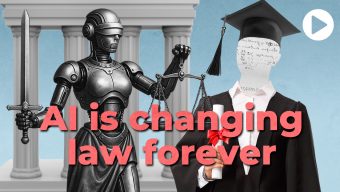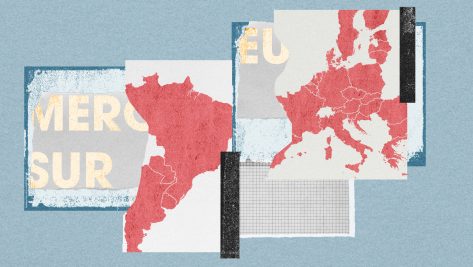What Is the Future of Legal Practice?
Digitalization has revolutionized how transactions are made, and the world of legal practice is using lessons from its origins to keep up, explains Soledad Atienza, Dean of IE Law School.
© IE Insights.
Transcription
Legal education and legal practice need to respond to the current challenges of a global and a digital society. In the Middle Ages, in Bologna, which was one of the first universities in Europe, the way they taught law was what was called “ius commune”, which was principles of law that were actually not applicable to one specific country. And then with time, other universities in Europe and around the world started teaching more national law, a more local approach.
Legal education today is going back to the very origins. The main legal systems are common law systems versus civil law systems, common law systems are systems followed in countries like the US and the UK, which are two of the most relevant legal markets. Civil law systems are followed in continental Europe.
In order to be able to practice the law in this complex world requires to truly understand more than one legal system, more than one jurisdiction. To serve and to give a quality service to international clients or even to national clients in international deals, global legal practice responds to the internationalization of companies, of countries, to the European Union harmonization, to movement of people and services.
But there is another force pushing for change. And this is the use of technology and digitalization, again, of services and digitalization of companies, business, and governments. Current societal challenges, from the pandemic, to the war in Ukraine, to climate change, international disputes, or international acquisitions, or international deals. Any transaction not only by multinationals, but also by small and medium sized companies needs some international advice.
There is a need for all of the parties to at least understand to a minimum level what the legal system from the other party is like. Because business transactions are happening online, conflicts are arising from a different way of signing contracts, from a different way of selling goods, from a different way of providing services.
The challenge, I believe, is the access. So the regulation to actually acquire the qualifications to become a practicing lawyer. This is still locally regulated, versus the trend for a response with international legal services. Talented students around the world are looking for more international opportunities, or at least looking for opportunities where they do not need to decide from scratch where they will practice their profession.
I imagine an education that responds to society, not to the regulation required for the qualifications for the profession. And the true needs of society are the needs to give legal services to a global and to a digital society. Lawyers who will shape society need to think globally, need to acquire what I call a global legal mindset because lawyers are the architects of society.










